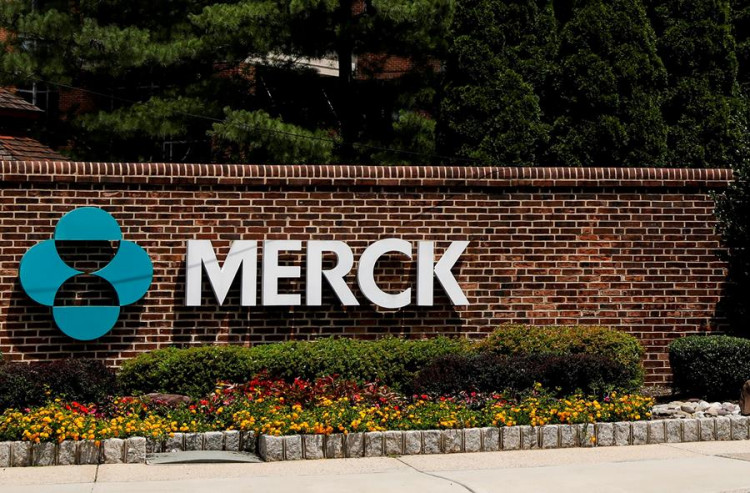Merck & Co. experienced its steepest stock drop in three years following a mixed second-quarter earnings report that highlighted lower-than-expected sales of its Gardasil HPV vaccine in China. Despite surpassing profit and revenue estimates, the disappointing performance of Gardasil overshadowed the company's quarterly achievements, leading to a significant market reaction.
Merck's shares plummeted by as much as 7.7% in New York trading, marking the most substantial decline since November 2021. This fall came after a strong year, with the stock rising 17% through Monday's close, outperforming many of its U.S. pharmaceutical peers and the S&P 500 Index.
The company's financial results were a mixed bag. Merck reported second-quarter net income of $3.14 billion, or $1.27 per share, down from $3.38 billion, or $1.37 per share, in the same period a year earlier. However, adjusted earnings were $2.28 per share, beating analysts' average estimate by 11 cents. Revenue for the quarter reached $16.1 billion, up 7% year-over-year, exceeding the consensus estimate of $15.84 billion. Excluding the impact of foreign exchange, sales rose by 11%.
Merck's blockbuster cancer immunotherapy, Keytruda, was a standout performer, generating $7.27 billion in revenue, up 16% from the previous year. This strong performance helped offset weaknesses in other areas, including Gardasil, which saw only a marginal 1% increase in sales to $2.48 billion. The vaccine's growth was largely offset by lower sales in China, attributed to issues with a third-party distributor.
Chief Executive Officer Rob Davis highlighted the unexpected decline in Gardasil shipments to China during a conference call with analysts. "If this trend continues, we will likely ship fewer doses of the vaccine than previously forecasted," Davis said. This development raises questions about the long-term sales targets for Gardasil, especially given China's vast population and market potential.
Despite the Gardasil setback, Merck raised its full-year revenue forecast by $200 million at the median, to between $63.4 billion and $64.4 billion. The company's next significant product, Winrevair (sotatercept), a treatment for pulmonary arterial hypertension, generated $70 million in its first full quarter on the U.S. market, exceeding analysts' expectations.
Merck's ongoing strategic investments include a nearly $11 billion acquisition of Prometheus Biosciences Inc., a maker of treatments for autoimmune disorders, and a $22 billion collaboration deal with Daiichi Sankyo Co. on novel cancer medicines. These moves aim to diversify and strengthen Merck's product portfolio as Keytruda faces future pricing pressures.
However, acquisition costs have impacted Merck's profit outlook. The company lowered its 2024 adjusted EPS forecast to $7.94 to $8.04, down from previous guidance of $8.53 to $8.65. This reduction reflects one-time charges related to the acquisitions of biotech firm EyeBio and the aquatic business of Elanco Animal Health Inc.
Despite these financial adjustments, BMO analyst Evan Seigerman remains optimistic about Merck's commercial performance, noting that the company's consistent outperformance and the successful launch of Winrevair exceeded even the highest expectations.
In addition to its pharmaceutical achievements, Merck received FDA approval for Capvaxive (Pneumococcal 21-valent Conjugate Vaccine), designed to protect adults against 21 strains of bacteria causing pneumococcal disease. However, the company and its partner Daiichi Sankyo received a Complete Response Letter from the FDA for their Biologics License Application for patritumab deruxtecan (HER3-DXd), a lung cancer treatment, which could delay its market entry.
Merck's stock, despite its strong year-to-date performance, fell 3.19% in premarket trading following the earnings announcement. The decline reflects investor concerns about Gardasil's future performance in China and the overall impact of acquisition costs on Merck's profitability.





